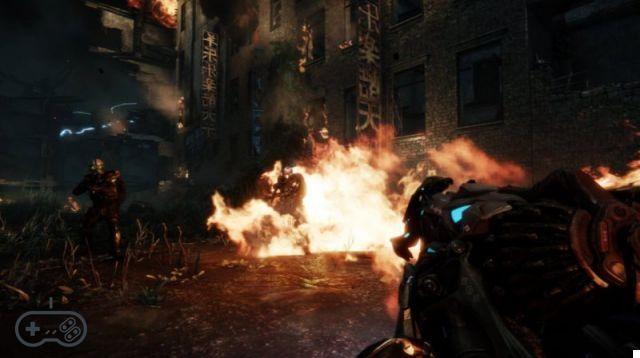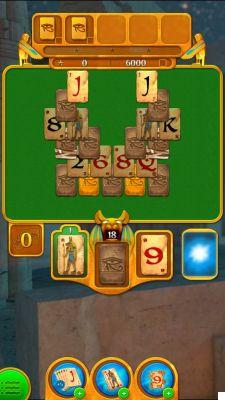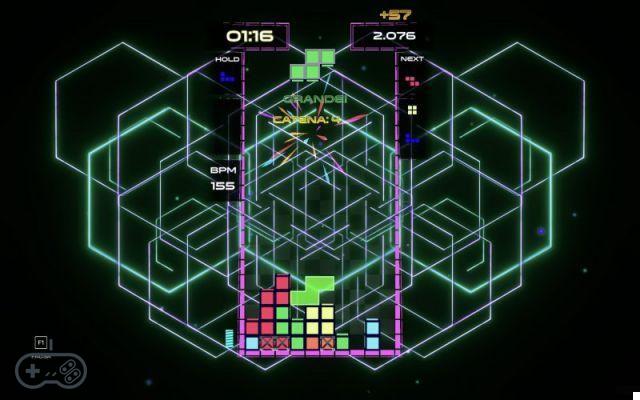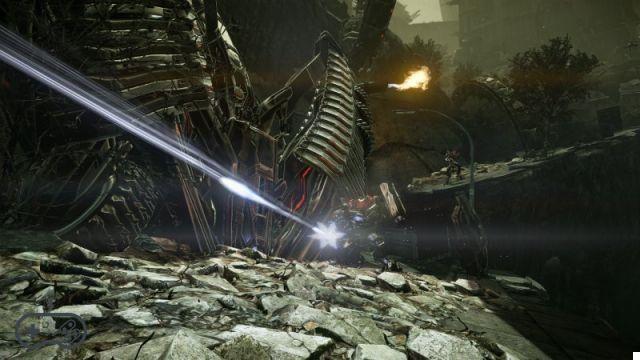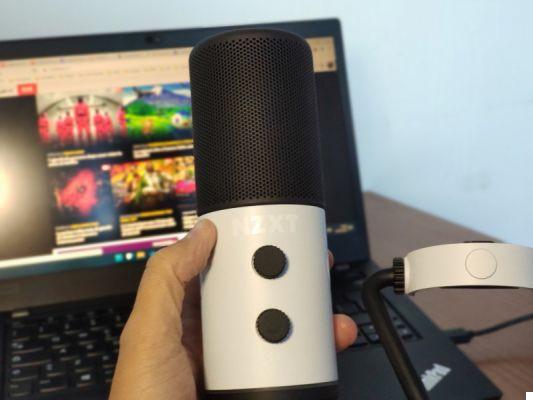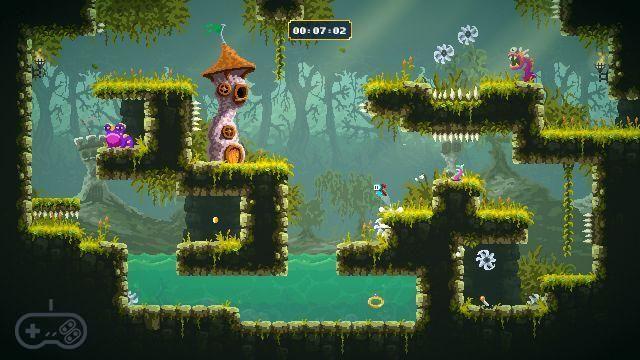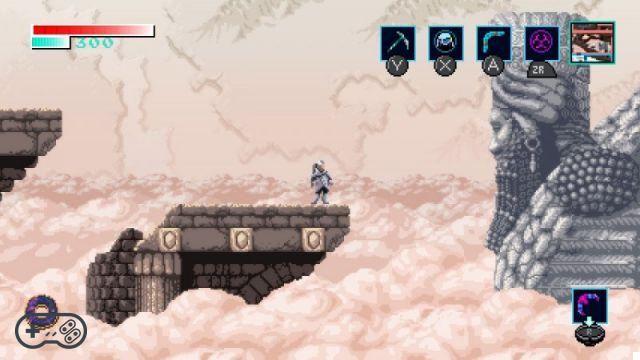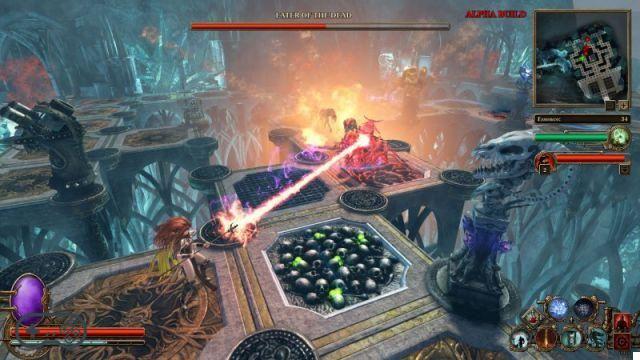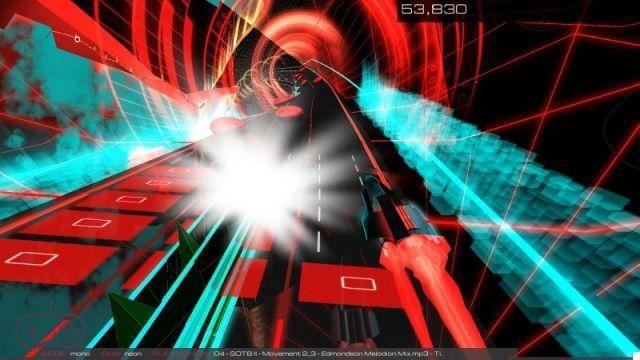The typical media ambaradan that accompanies the Olympic Games every four years, of course, also includes the world of video games. For decades now, the digital counterpart of the Olympics has punctually entered the videogame market, accompanying technological progress with a constantly evolving aspect. Strange thing: every four years, the Olympic simulations should be paradigmatic of the technical changes that characterize the IT world, touching a different generation platform every two editions, on average, yet their link with the common matrix of Track and Field remains undeniable. . Of course, the graphics change and the sound as well, but it is curious to see how the game dynamics, in several respects, are practically the same as the classic Konami of twenty years ago. On the other hand, we agree, it is not easy to schematize athletic disciplines in convincing interfaces, in order to create real simulations. The solution remained to focus everything on timing, endurance or precision of movements, in this way, effectively, approaching the founding principles of these sports.
Beijing 2008 it happens right in the middle of the new generation of consoles, a moment in which the potential of the machines is well exploited, and the spread of platforms can ensure wide margins of success, yet the feeling remains the same characteristic of previous productions of the same type. Manufactured by Sega and developed by Eurocom, Beijing 2008 collects the legacy of the previous edition of the Olympics - again by the same team - perfecting the dynamics typical of the genre and focusing on the richness of the contents. Unfortunately, the new additions are just one of the less convincing aspects of the product.

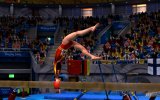

Track, field or lecture?
The most striking aspect, at the beginning of the game, is the quantity of disciplines inserted by Eurocom. Divided into various categories (track, field, indoor and more) there are 38 specialties that can be selected in 10 different sports, a decidedly impressive number. The modalities include training, single exhibition in a discipline of your choice, the actual Olympics or multiplayer game (online or locally), with which it is possible to perform against human opponents in each specialty (option that represents then, generally, the strength of this type of games). The main option, the one that re-proposes the path of the Olympic Games, is structured with a minimum of management skeleton: in fact, we will have to take possession of an entire team of athletes, selecting their nation of origin, and with it gradually try to qualify for the various rounds of competition, up to obviously trying to win medals. There are some parameters to adjust at the beginning of the game with the distribution of some bonus points: precision, endurance, power, agility, speed, "slow motion" and "extended slow motion" (the latter two refer to the possibility of controlling with more precision for moments that require more precise timing, such as the start of a race). By collecting positive results in the various tests, we receive in exchange points that can be distributed again to increase the statistics, or to decrease the level of fatigue that progressively affects the team. The Olympics are divided into various days, in each of which we will have to perform in a series of disciplines, according to the calendar of the games. There are minimum requirements necessary to continue, which will increase progressively: in the first rounds it will be enough to qualify in one of the proposed disciplines, but soon we will have to try to get more, or the Game Over will force us to leave Beijing for an early summer vacation.
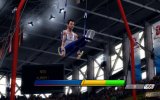
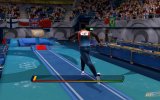
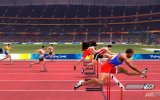
Stress test
Once on the track (or in the pool, or in the gym), we find the familiar atmosphere of this genre of games, and we realize that, beyond the new graphics, little has substantially changed since the days of Track and Field and of Epyx sports simulations: in most cases, the challenges are races of nerve and speed, to be violently downloaded to the controller. The stroke, for example (in its various specialties) is carried out by alternately pressing two keys as quickly as possible or, optionally, by shaking the analog stick along the right-left axis. Speed and stamina are the key to winning, and in this indeed lies the analogy between video simulation and real sport. Eurocom has embellished the historical dynamics a little with the introduction of new steps and movements to be performed, for example, the start in speed races is regulated by the pressure of an analog trigger, trying to fill a bar at the exact moment in which the pistol signals departure. If we reach the limit prematurely, we will make a false start, if instead we wait too long, we will start late. Likewise, the various disciplines of throwing, jumping, swimming, etc. they require a whole series of different movements and various key presses, to be performed with the most precise timing possible and execution speed to obtain the best result. Throws require a "loading" period (running phase, or body rotations) before unloading, to be carried out by controlling the launch angle, jumps also have the first run-up chin (with associated control) followed by various commands to be carried out in the right amount of time, up to the most particular disciplines, such as Table Tennis or Judo, which are based on ad hoc interfaces, but always in this line of thought based on the pre-set sequence to be performed in the best of ways. The variety is certainly not lacking, given the amount of different sports, but schematizing the actions required of the player are not many, going from wild button mashing to rhythmic movement or to the correct execution of sequences of movements. It should be noted, as regards the assimilation of the commands, that the guide that can be consulted before each performance often fails to be exhaustive, also given the complexity of some sports, forcing the player to learn the various disciplines more from their mistakes than from the tutorial. .
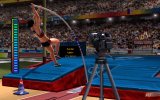
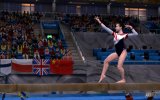
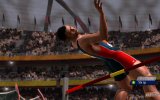
Faster, higher, stronger?
Four years after the last version of the Olympics, the generational leap is certainly noticeable in this Beijing 2008, however, when compared with the current quality of sports video games, one would think that something more, on the part of the developers, was to be expected. The quality of the animations is quite convincing, despite the fact that there is not a realistic variety between the performances of the various athletes, while the graphics of the scenarios are at good levels, although they lack a bit of spectacularity (the shots, for example, are very concentrated on the athlete showing little of the surrounding space). The polygonal models are well proportioned but, even in this case, they lack variety, all resembling each other a bit, and certain graphic effects that other sports simulations have accustomed us to are absent, such as realistic textures for the skin, high-level dynamic shading. and sweat. Ultimately, it is a decent job, but it certainly does not represent one of the peaks reached by the new generation platforms. The sound accompaniment falls within the standard levels of a simulation of this type, even if the commentator in Spanish certainly does not stand out for the enthusiasm he instills in the commentary. To the detriment of the continuity of the game, there are really too long loading times in the passages between one sport and another, which tend to break the rhythm and tire, especially in the "Olympics" mode.
The large amount of sports specialties available is certainly a strong point of the product, but the artificial and complex interface, which characterizes in particular the new introductions (in particular Table Tennis, Judo, Canoe, Free Body and Clay Shooting) it mortifies the gaming experience, leading the user to necessarily prefer the classics of this genre: the track and "outdoor" disciplines.
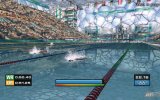
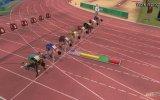
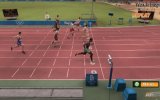
Comment
The official video games of the Olympics clearly leverage the enthusiasm of the whole world towards a sporting event of such importance, and the favor they can enjoy towards the public has a purely "seasonal", emotional character, which ends in largely with the end of the sporting event. It is perfectly normal, just as it is normal to expect few changes in a game structure that has been practically identical for twenty years now. If we analyze the actual game phase, in fact, we realize that the fun, in its component that derives from a cerebral and sensory stimulation given by the video game, in this Beijing is difficult to find. What leads to stress joints and controllers with such a game is to be found elsewhere: in competitive competition, in large part, a mechanism that is still valid today, since the days of "Sporting Gold from Epyx", and this is demonstrated by the fact that the most appreciable disciplines are still the classic ones, which are repeated unchanging over the years, to the detriment of new (questionable) introductions. But it is an ephemeral passion, destined to run out with the closing of the Games.
For
- Large amount of disciplines
- Various modes, including a good Olympics
- Olympic atmosphere guaranteed
- Always the same button mashing structure
- Technically mediocre
- The new disciplines are not very convincing
Xbox 360 - Achievements
Beijing 2008 contains 50 unlockable achievements for a total of 1000 points. Obviously, its structure naturally tends to integrate with the achievements system: many of these are obtained by reaching particular records in the various disciplines, perfectly overlapping the tendency to improve the score that is obvious in a game of this kind. Others are linked to the results achieved in multiplayer games, still others are obtained by continuing in the Olympics mode. In general, for a digital Olympics enthusiast, collecting all the goals will be a moral imperative.





